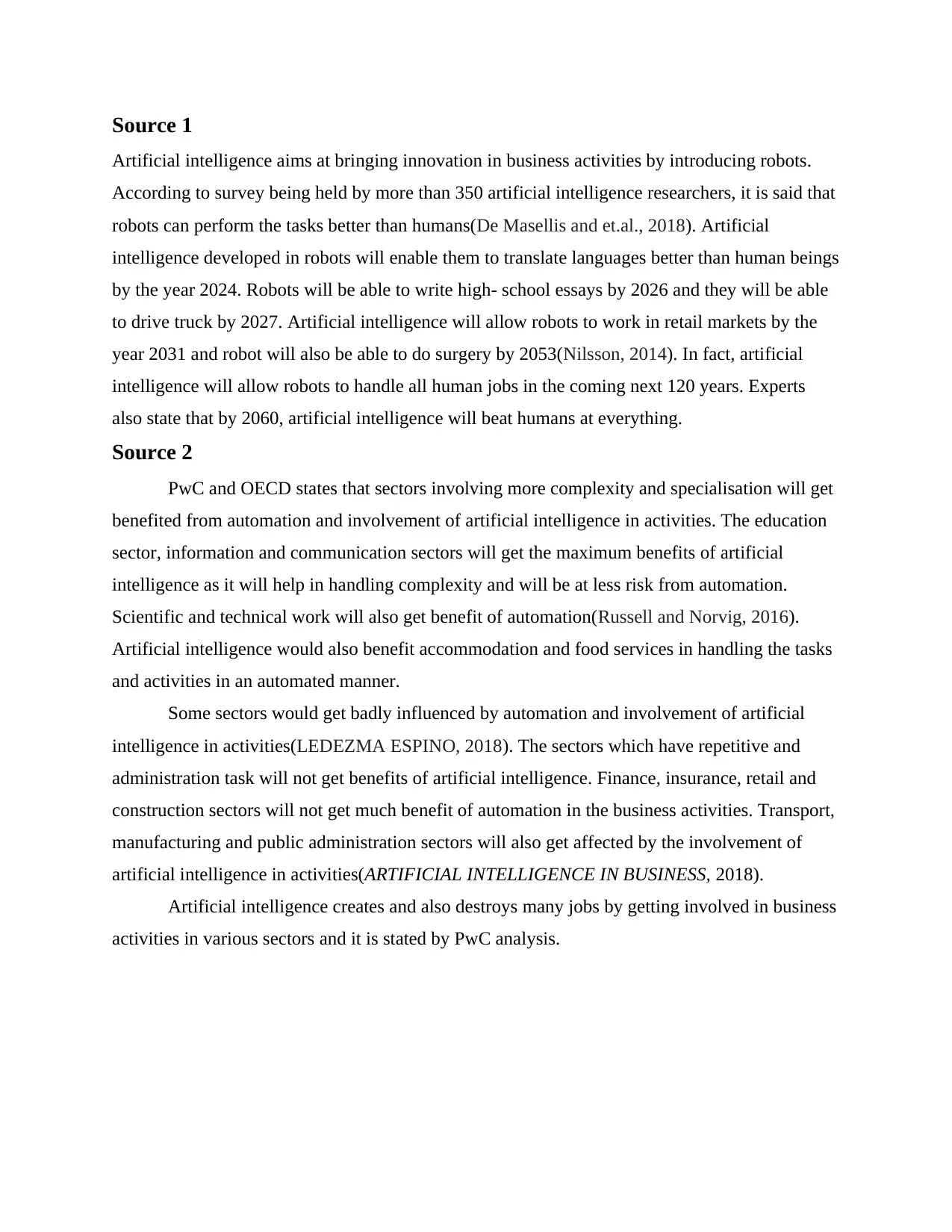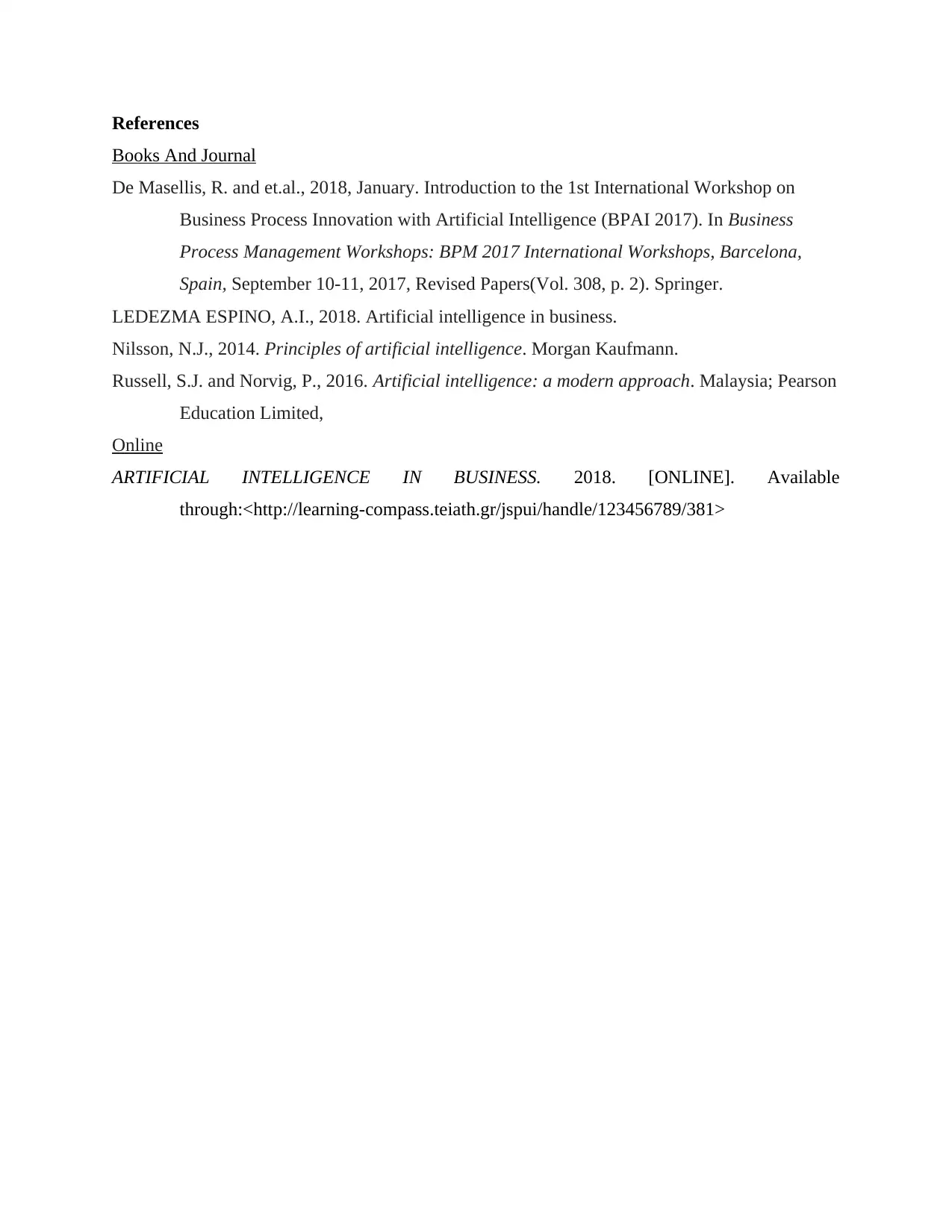Impact of Artificial Intelligence on Various Business Sectors
VerifiedAdded on 2020/10/04
|4
|516
|267
Report
AI Summary
This report examines the impact of artificial intelligence (AI) on various business sectors. It explores the potential of AI, including the use of robots in automating tasks and improving efficiency, as suggested by research from sources like De Masellis and Nilsson. The report considers both the benefits and drawbacks of AI, highlighting sectors that may gain from automation, such as education and information technology, and those that may be negatively impacted, like finance and retail. It also touches on the job market implications of AI, referencing PwC analysis on job creation and destruction. The report's conclusion provides a balanced perspective on the role of AI in shaping the future of business.
1 out of 4











![[object Object]](/_next/static/media/star-bottom.7253800d.svg)